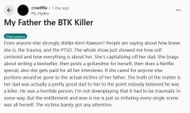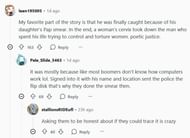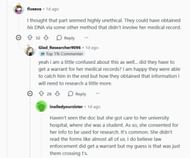My Father, the BTK Killer arrived on Netflix on October 10, and the reaction on Reddit turned fast and sharp. The discussion centers on Kerri Rawson, daughter of Dennis Rader, and how the film focuses on her story while tracking the crimes tied to the BTK case.
The documentary presents Rawson’s life before and after her father’s 2005 arrest, while sketching out key beats of the investigation. Viewers who watched the premiere jumped into r/netflix to debate whether the film fairly balances Rawson’s experience with the victims’ families and the broader case.
Why My Father, the BTK Killer stirred debate
Some commenters pushed back on praise for Rawson, arguing the series spotlights her screen time more than the victims. A cluster of comments also questioned whether Rawson has profited from the attention, citing her book, paid interviews, and an alleged GoFundMe, claims that remain disputed.

Others countered that Rawson is a secondary victim and has the right to narrate the fallout of living with a father later unmasked as a serial killer. These comments framed the film itself as a personal memoir set against a notorious case rather than a cradle-to-conviction procedural.
Also read: 5 key details about the Eric Thompson case as 'The Bucket Hat Killer' on Dateline
Fan reactions to My Father, the BTK Killer thread
The top-circulating line in the thread came from a commenter who celebrated the DNA break that linked the case back to Rader through a familial sample, calling it “poetic justice.” The phrase became a shorthand in replies for a case where women’s health data, secured by court order, intersected with a long hunt for a hidden offender.
u/leen195005 commented
My favorite part of the story is that he was finally caught because of his daughter’s Pap smear. In the end, a woman’s cervix took down the man who spent his life trying to control and torture women. poetic justice.
Skeptics in the same thread pointed out the role of Rader’s tech missteps, noting that the floppy disk he mailed helped police zero in on him. For those voices, the disk and the metadata trail were the practical hinge, while DNA confirmation sealed it.

A separate group focused on ethics. Some argued that using a medical sample, even with a court order, raised privacy questions. Others replied that a court-authorized route meets legal standards and that the gravity of the murders justified the step. The debate stayed active, with no full consensus in view.

Finally, several redditors pushed back on tone-based critiques of Rawson. They described a person who has lived for years under public glare, noting that trauma shapes interviews and on-camera behavior, and that any shifts in how she describes her childhood could reflect new disclosures or memory work over time. u/Lopexie commented on My Father, the BTK Killer:
I find this a very odd take. As the child of a nationally infamous serial killer she is also one of his victims. If there is one thing the US is not good at, it is separating perpetrators of evil from their families when it comes to judgement.
Case context in My Father, the BTK Killer
My Father, the BTK Killer revisits core facts. Dennis Rader murdered 10 victims in Kansas between 1974 and 1991 and was arrested in 2005. The investigation combined his return to letter-writing with a digital trail and a familial DNA match, which added scientific weight to a growing pile of circumstantial clues.
According to TIME, investigators matched Rader’s profile after obtaining Rawson’s DNA from a medical sample, while Rader’s own communications, including a floppy disk, linked back to his church role and computer files; he later pleaded guilty and received 10 consecutive life terms.
My Father, the BTK Killer streams on Netflix now.
